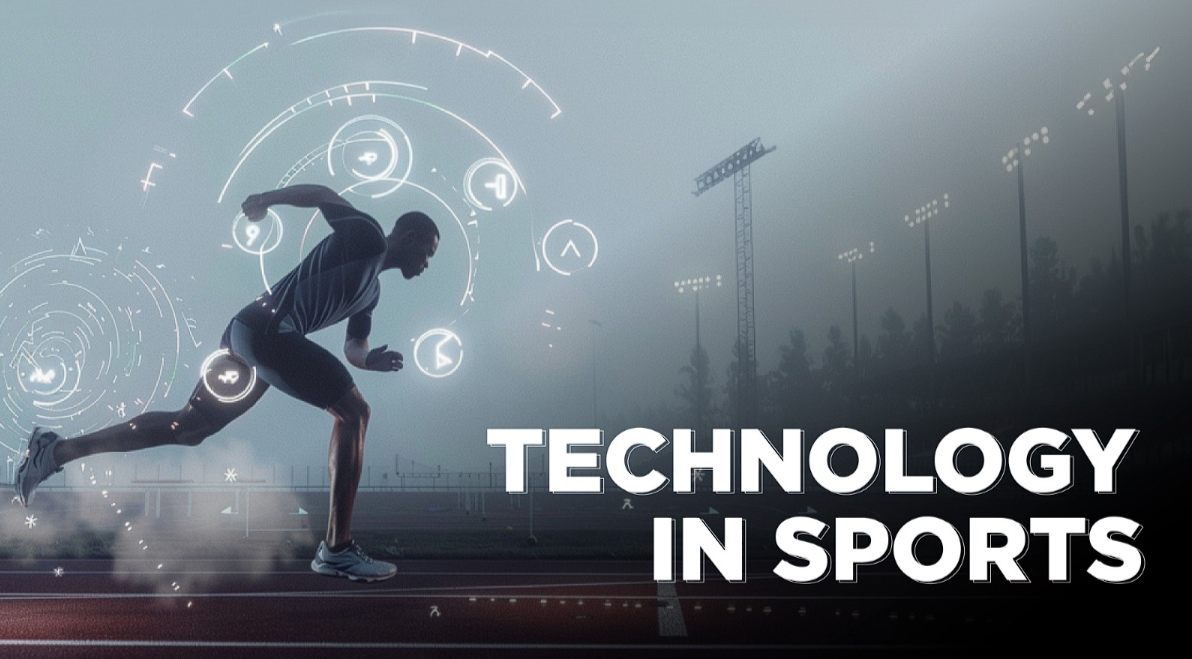The world of sports betting has evolved significantly over the years, driven by technological innovations that have transformed the way bettors engage with the industry. From mobile betting apps to advanced data analytics, technology has played a crucial role in enhancing the betting experience and providing new opportunities for bettors. This article explores the key technological innovations in sports betting and their impact on the industry.
Mobile Betting Apps
Convenience and Accessibility
Mobile betting apps have revolutionized the sports betting industry by offering unparalleled convenience and accessibility. Bettors can now place wagers on the go, ensuring they never miss an opportunity.
- User-Friendly Interfaces: Mobile apps feature intuitive and user-friendly interfaces, making it easy for bettors to navigate and place bets.
- Real-Time Updates: Mobile apps provide real-time updates and notifications, keeping bettors informed about live events, odds changes, and betting opportunities.
- Push Notifications: Push notifications ensure that bettors are always aware of the latest developments and can act quickly to place bets.
Features and Functionalities
Mobile betting apps offer a range of features and functionalities designed to enhance the betting experience.
- Live Betting: Mobile apps support live betting, allowing bettors to place wagers as the event unfolds. This adds an extra layer of excitement and engagement.
- Cash Out Options: The cash-out feature enables bettors to settle their bets early, either to secure a profit or minimize losses.
- Customizable Dashboards: Users can customize their dashboards to display their favorite sports, markets, and bets, enhancing their overall experience.
Advanced Data Analytics
Predictive Modeling
Advanced data analytics and predictive modeling have transformed the way bettors make decisions. By analyzing vast amounts of data, bettors can gain valuable insights and make more informed bets.
- Historical Data Analysis: Analyzing historical data helps bettors identify trends and patterns that can influence betting outcomes.
- Real-Time Data: Real-time data analytics provide up-to-date information, allowing bettors to make informed decisions based on the latest developments.
- Machine Learning Algorithms: Machine learning algorithms can analyze data and identify patterns that may not be immediately apparent to human analysts.
Performance Metrics
Performance metrics play a crucial role in sports betting, providing bettors with valuable insights into team and player performance.
- Player Statistics: Detailed player statistics, including goals, assists, and performance metrics, help bettors assess individual contributions and make informed bets.
- Team Performance: Analyzing team performance metrics, such as possession, shots on goal, and defensive statistics, provides a comprehensive view of a team’s strengths and weaknesses.
- Head-to-Head Records: Head-to-head records offer insights into how teams and players have performed against each other in the past, helping bettors make more informed decisions.

Artificial Intelligence and Machine Learning
Personalized Recommendations
Artificial intelligence (AI) and machine learning have enabled betting platforms to provide personalized recommendations tailored to individual bettors’ preferences and behaviors.
- User Profiles: AI algorithms analyze user profiles and betting histories to provide personalized recommendations that align with individual preferences.
- Behavioral Analysis: Behavioral analysis helps identify patterns and trends in betting behavior, allowing platforms to offer more relevant and timely recommendations.
- Real-Time Adjustments: AI systems can make real-time adjustments to recommendations based on changing market conditions and new information.
Fraud Detection
AI and machine learning have also enhanced fraud detection in sports betting, ensuring a safer and more secure betting environment.
- Anomaly Detection: AI algorithms can detect anomalies in betting patterns, identifying potential fraudulent activities and ensuring the integrity of the betting platform.
- Real-Time Monitoring: Real-time monitoring enables betting platforms to detect and respond to fraudulent activities quickly, minimizing risks and protecting bettors.
- Enhanced Security: AI-driven security measures provide an additional layer of protection, ensuring that bettors’ information and funds are secure.
Virtual Reality and Augmented Reality
Immersive Betting Experiences
Virtual reality (VR) and augmented reality (AR) technologies are transforming the sports betting experience by providing immersive and interactive environments.
- Virtual Sports Betting: VR and AR technologies enable bettors to participate in virtual sports betting, offering a realistic and engaging experience.
- Interactive Environments: Interactive environments allow bettors to explore virtual stadiums, interact with virtual players, and place bets in real-time.
- Enhanced Engagement: VR and AR technologies enhance engagement by providing a more immersive and interactive betting experience.
Real-Time Visualization
Real-time visualization through VR and AR technologies provides bettors with up-to-date information and insights, enhancing their decision-making process.
- Live Data Visualization: Real-time data visualization enables bettors to see live updates and statistics, providing a comprehensive view of the event as it unfolds.
- Interactive Graphics: Interactive graphics allow bettors to explore different scenarios and outcomes, helping them make more informed decisions.
- 3D Modeling: 3D modeling provides a realistic and immersive representation of the event, enhancing the overall betting experience.
Blockchain Technology
Transparency and Security
Blockchain technology has introduced new levels of transparency and security in sports betting, ensuring fair play and protecting bettors’ interests.
- Decentralized Ledgers: Decentralized ledgers provide a transparent and secure record of all betting transactions, ensuring that bettors can trust the integrity of the platform.
- Smart Contracts: Smart contracts automate the execution of betting agreements, ensuring that all parties adhere to the agreed terms and conditions.
- Immutable Records: Immutable records ensure that betting transactions cannot be altered or tampered with, providing an additional layer of security.
Cryptocurrency Betting
Cryptocurrency betting has gained popularity due to its enhanced security, anonymity, and convenience.
- Anonymous Transactions: Cryptocurrency betting provides anonymity, allowing bettors to place wagers without revealing their personal information.
- Fast Transactions: Cryptocurrency transactions are fast and efficient, ensuring quick deposits and withdrawals.
- Global Accessibility: Cryptocurrency betting platforms are accessible globally, providing bettors with a wider range of opportunities and markets.
Conclusion
Technological innovations have transformed the sports betting industry, offering new opportunities and enhancing the betting experience. From mobile betting apps to advanced data analytics, AI, VR, AR, and blockchain technology, these innovations have revolutionized the way bettors engage with sports betting. By leveraging these technologies, bettors can make more informed decisions, enjoy a more immersive and interactive experience, and ensure a safer and more secure betting environment. As the industry continues to evolve, staying informed about these technological advancements can help bettors maximize their potential returns and enhance their overall betting experience.





